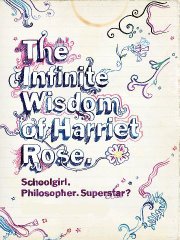Now that I'm an established author whose meditations are even being quoted internationally, I decided yesterday to try my hand at short story writing. It was harder than I'd thought it would be. At school we're given essay titles which help to focus the mind. But when you can write about anything at all, it's much harder.
My first attempt was about a self-taught viloinist who turns down a marriage proposal because she doesn't respect the manner in which she is asked - over a Chicken Biryani in her flat with Question Time on in the background. When I'd finished it (and I knew I had because the proposal was finally acceptable) I read it over then put a line right the way through it. What else could I do? Of all the subjects in the world to write about, of all the views close to my heart I could have put across, of all the people I had met and admired, I had chosen to describe a self-taught violinist and a Chicken Biryani. And I don't even like Chicken Biryani. And I can't even play the violin. And I've never even had a marriage proposal.
So I tried again. This time, I was happier with the content. A successful and beautiful young woman (and already I felt this heroine was someone I could relate to) suddenly decides to have a flatmate, to the horror of her admiring Russian boyfriend - a violinist (my persistent obsession with the violin took even me by surprise). I liked the storyline because it had a twist - the flatmate is assumed throughout to be a young woman - she's full of life and strong-willed and attractive to men who are drawn to her vibrant, outspoken personality. It's not until the end that the reader discovers the flatmate is eighty-five. At least this time I had written about characters I admired. But I feared that some readers might feel that the heroine had made the wrong choice in turning down the opportunity to live with the Russian violinist in favour of her eighty-five year old Great Aunt. Personally, I thought she made exactly the right choice, but I had my readers to consider.
I didn't try again after that. Short stories, I decided, were not for Harriet Rose. I may be able to condense my thoughts into Meditations, but I cannot condense my characters - they have too much to say.
Thursday, 22 November 2007
Monday, 19 November 2007
When I'm asked if I have a boyfriend, I never know what to say. I find the whole concept of 'boyfriend' a curious one. A friend who is a boy? I have several of those. Yet when the two words are juxtaposed they seem to take on an entirely different meaning, like egg and cress sandwiches - each ingredient boring on its own but delicious once you put them together. Not that I consider a 'boyfriend' delicious. It's concepts I'm discussing rather than their implications. Philosophers will understand that, especially if they've ever mixed theirs with mayonnaise to bind the egg and cress together.
So what ingredient is it that similarly binds together a boy and a friend into that elusively indefinable concept 'boyfriend', used randomly to extend on occasion even to ageing lotharios who haven't been 'boys' for very many years? Wherein lies the mayonnaise of a 'boyfriend'? Not enough people reflect on such questions before answering them. And you should. Unless, of course, you don't care to answer questions truthfully, in which case you're not really someone worth talking to anyway.
Perhaps I'll find the answer when I have a boyfriend. Then again, perhaps I have one already and I don't know it. I'm referring, of course, to Jean Claude, a boy who's most certainly a friend, but, as Nana would say, a friend to who else? If asked, I think the safest solution might be to leave a small pause between the words 'boy' and 'friend' and then I shan't be saying anything untruthful. Like this:
"So, Harriet, is Jean Claude like your boyfriend then, or what?"
"Yes, Jason, Jean Claude is my boy" then the small pause, "friend."
That should do the trick.
So what ingredient is it that similarly binds together a boy and a friend into that elusively indefinable concept 'boyfriend', used randomly to extend on occasion even to ageing lotharios who haven't been 'boys' for very many years? Wherein lies the mayonnaise of a 'boyfriend'? Not enough people reflect on such questions before answering them. And you should. Unless, of course, you don't care to answer questions truthfully, in which case you're not really someone worth talking to anyway.
Perhaps I'll find the answer when I have a boyfriend. Then again, perhaps I have one already and I don't know it. I'm referring, of course, to Jean Claude, a boy who's most certainly a friend, but, as Nana would say, a friend to who else? If asked, I think the safest solution might be to leave a small pause between the words 'boy' and 'friend' and then I shan't be saying anything untruthful. Like this:
"So, Harriet, is Jean Claude like your boyfriend then, or what?"
"Yes, Jason, Jean Claude is my boy" then the small pause, "friend."
That should do the trick.
Subscribe to:
Posts (Atom)
